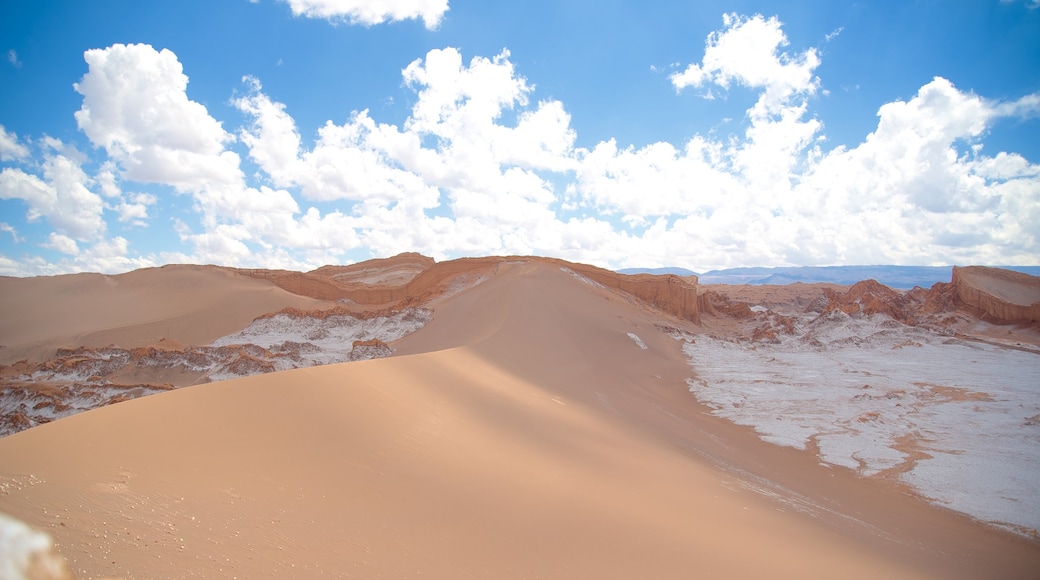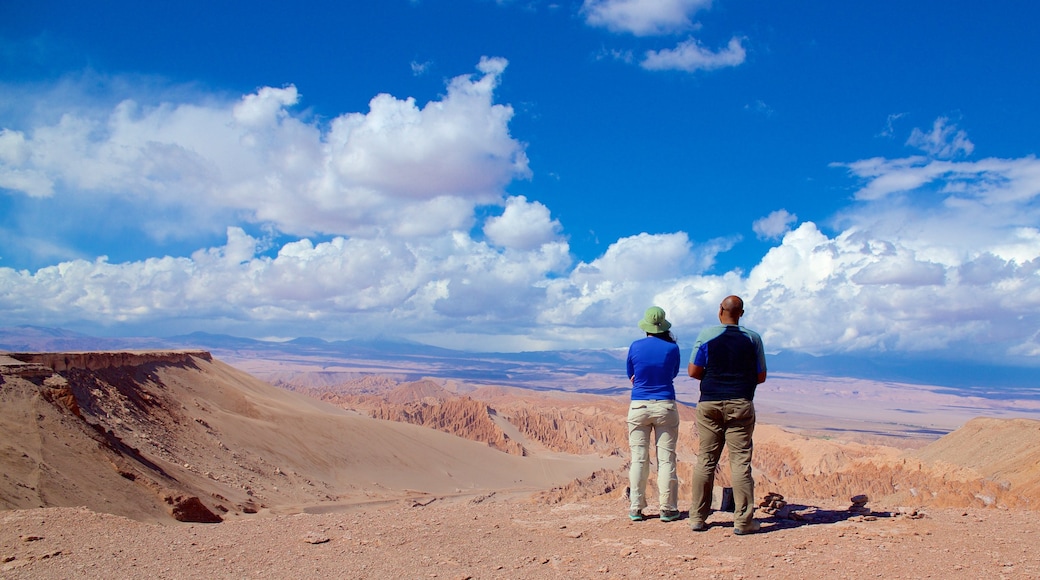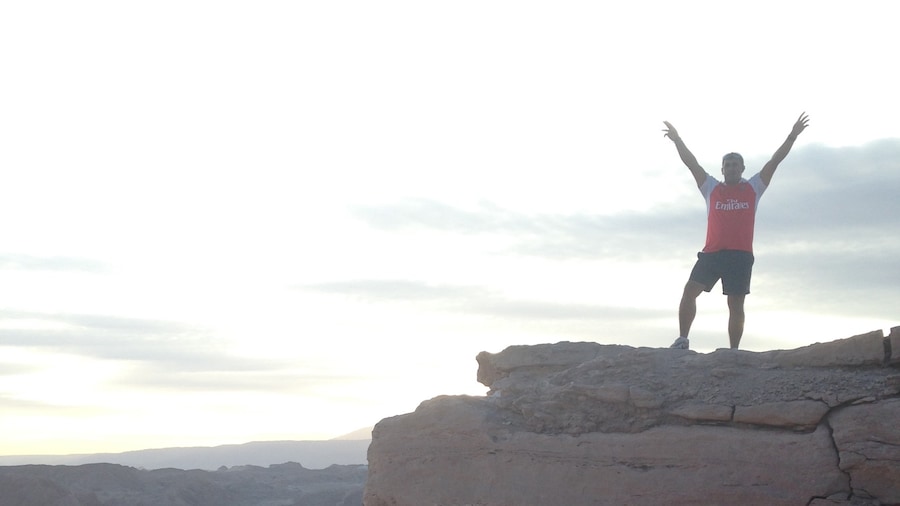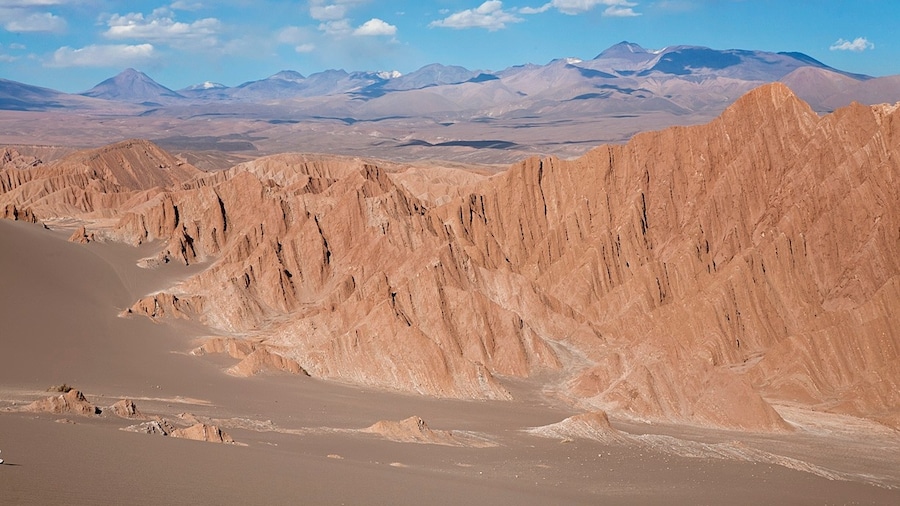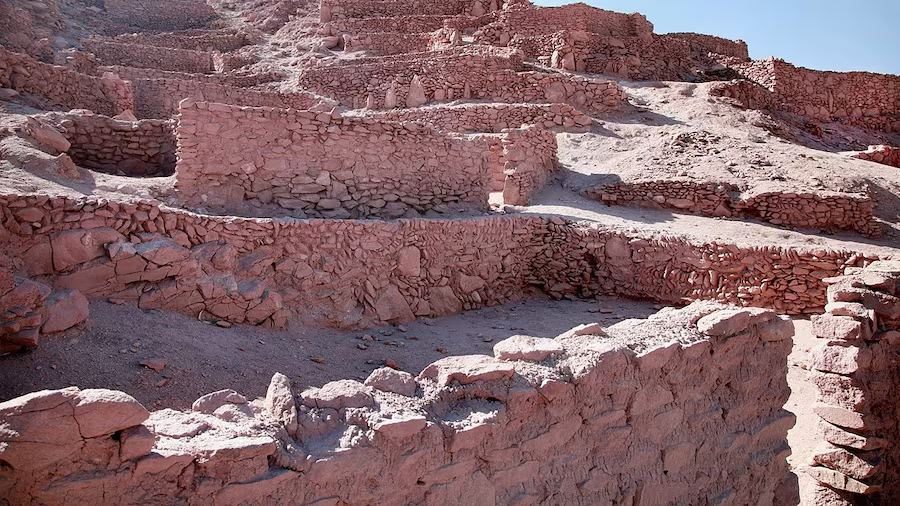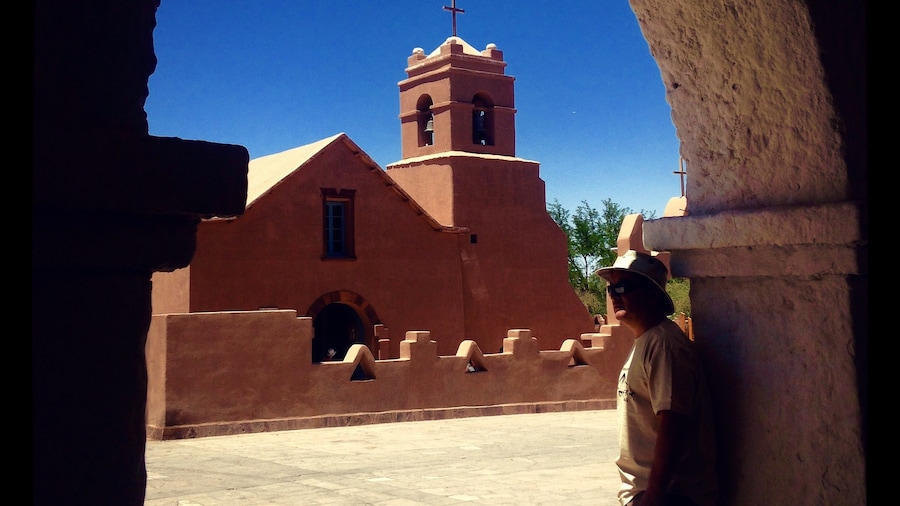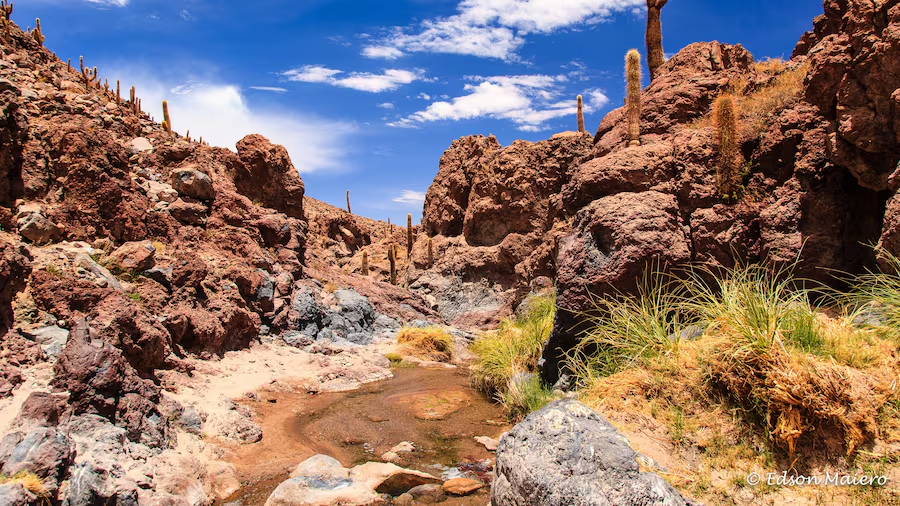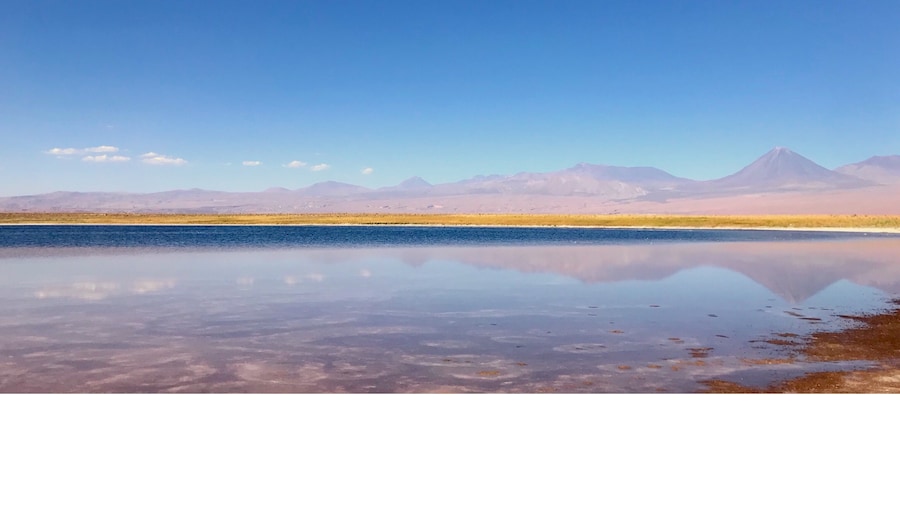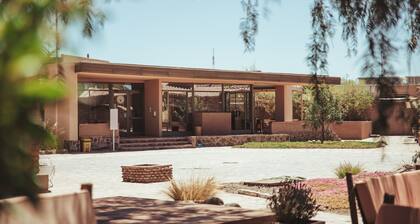The Valle de la Luna earns its name as “Moon Valley” from its lunar-like terrain in the mountainous desert. It comprises countless stone and sand formations shaped over millennia by water and wind. Note how the appearance is similar to photos of the moon and Mars, generating an otherworldly look among the many colors of the rock face. See the salty white surface of a dry lake, the dark holes of caverns and the red and purple hues of the cliffs at sunset.
Stroll leisurely through the valley with your family to appreciate the unique atmosphere. Hike over the hills and trails and investigate mysterious caves.
Stay for the magnificent sunset, when the colors of the cliffs seem to turn a deeper red. Capture photos of the stunning site as day turns to dusk. From atop a steep hill you’ll have a breathtaking view of the valley below you. The air can be a bit thin and hard to breathe at an elevation of 7,427 feet (2,264 meters) above sea level.
Some of the rock formations seem as though ancient humans sculpted them. Check out the “Three Marias,” a natural statue featuring figures apparently rising from the ground.
This valley is considered one of the driest places on earth, which accounts for the harsh, arid landscape. Some parts have not received a drop of water for many centuries.
Set off with a tour operator in the afternoon to reach the valley before sunset. Make sure your visit comes with an air-conditioned van and an English-speaking guide. You will pay an entrance fee to the valley in addition to the tour operator price.
The Valle de la Luna is in the arid environment of the Atacama Desert, just 8 miles (13 kilometers) west of San Pedro de Atacama. The journey by car will take about 10 minutes. Consider renting a bike and cycling the relatively short distance, providing more time and autonomy during your visit to the valley.


